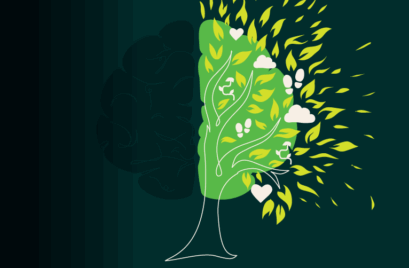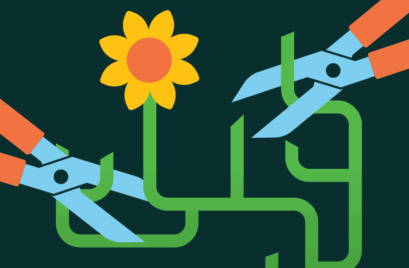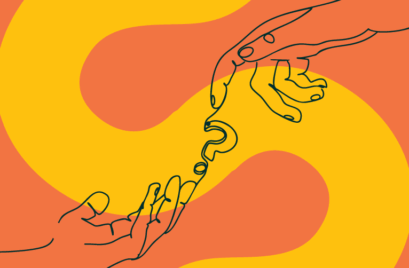
Evolutionary biologists believe that one of the major reasons for the success of the human race has been our ability to work cooperatively in collectives. There’s no doubt that we often reach our highest potential in groups. From social justice movements to NGOs, we can do so much more together. And that’s why “the organisation” has become so prevalent. But how do we think about our relationship as individuals with these bigger organisms?
A Different Way of Thinking
Organisational theories are often premised on what is called Agency theory. Agency theory assumes that individuals (agents) enter into a calculated agreement with employers (principals) to perform work in an organisation, which they perceive as a cost-effective relationship. It is highly transactional and self-interested.
The Stewardship mindset presents us with a different way of thinking about organisations. Stewardship theory “assumes unselfish behaviors from stewards involved in the same supra-individual cause as their principals.”
In other words, rather than seeing people as fundamentally self-interested, it holds a vision of people as purpose driven and engaged in collective progress. Of course, organisations can also be exploitative, and in this case there is no stewardship of team members, which is a necessary part of this equation.
From-To
Under stewardship theory, we are all trustees for the organisation and its broader mission. For team members, this change in mindset requires a reimagining of how we view work – as a place of community, a place of shared passion and interests and a place of joint striving. For leaders, this shift means thinking about how we work together in a very different way. The conditions of stewardship require the establishment of trust with each other, transparency around where we are going together, and cultivation of a strong sense of shared purpose.
| From | To |
| Contractual | Stewarding |
| Agent | Trustee |
| Transience | Community |
| “That’s not my job” | “This is our purpose” |
| Individual | Cooperation |
| Control | Delegation |
| Secrecy | Transparency |
Research shows that the more we feel that we are in this together and have a sense of shared ownership over the organisation, the better team member attitudes are around job satisfaction, commitment and work behaviour. What’s more, a sense of ownership even makes us act more generously towards each other. Stewardship-based organisations see improved wellbeing and this orientation “encourages cooperation and empowers and motivates employees, thereby enabling pro-organisational behaviours and ultimately enhanced firm performance.”
Changing the System
So, how do we start making the shift to the stewardship mindset and away from the agent-principal mindset?
We’ve already seen a major shift in the contemporary leadership space towards purpose-driven leadership. But there are other important components of a stewardship organisation. Atlassian, for example, talks about the importance of cultivating an ownership mindset through:
- A focus on outcome (‘product’) over process (‘project’) – have the team emphasise what is actually being produced rather than running through the motions of the process.
- High levels of delegation – devolving accountability and power throughout the team, so we all feel like we are contributing
- Transparency of information – ensuring that everyone is on the same page about where we are going and how we are tracking
- Emphasising customer empathy – connecting into the organisation’s purpose (in this case delivering for customers)
Becoming Stewards
Generally, we see two major factors which complement a purpose-driven organisation to make it a stewardship organisation:
- Communication
How does each person’s work contribute to our greater purpose?Beyond global statements and occasional addresses from a CEO, our individual teams need to have a constant flow of communication with leaders and teams about our broader work goals and how it all comes together.Action: Develop a cascading communication strategy, which devolves outcomes and performance to every level of the organisation. Integrate these outcomes within the broader picture by thinking about how you are delivering on your purpose by achieving them. - Care
How do we care for each other? For teams? For our customer or clients? For the greater world? As stewards, how do we ensure that our stakeholders and system end up stronger than before we came to them? In what ways is it brought to the front of mind and enacted in our organisational activities? This sense of caring must be strong in organisations who want to live the stewardship mindset.Action: Encourage broader ecosystem-wide thinking and decision-making frameworks, which consider how organisational activities impact a diverse range of stakeholders.
Need More Help?
The stewardship evolution has been gaining momentum for a number of years. In an era dominated by the Great Resignation and environmental decline, the question is: what is your next step in building organisations that make our systems better? Performance Frontiers can partner with you to explore what a stewardship orientation might mean for how we think about organisations, how we lead, and the possibilities we can achieve. Speak to Laura today and find out more.








